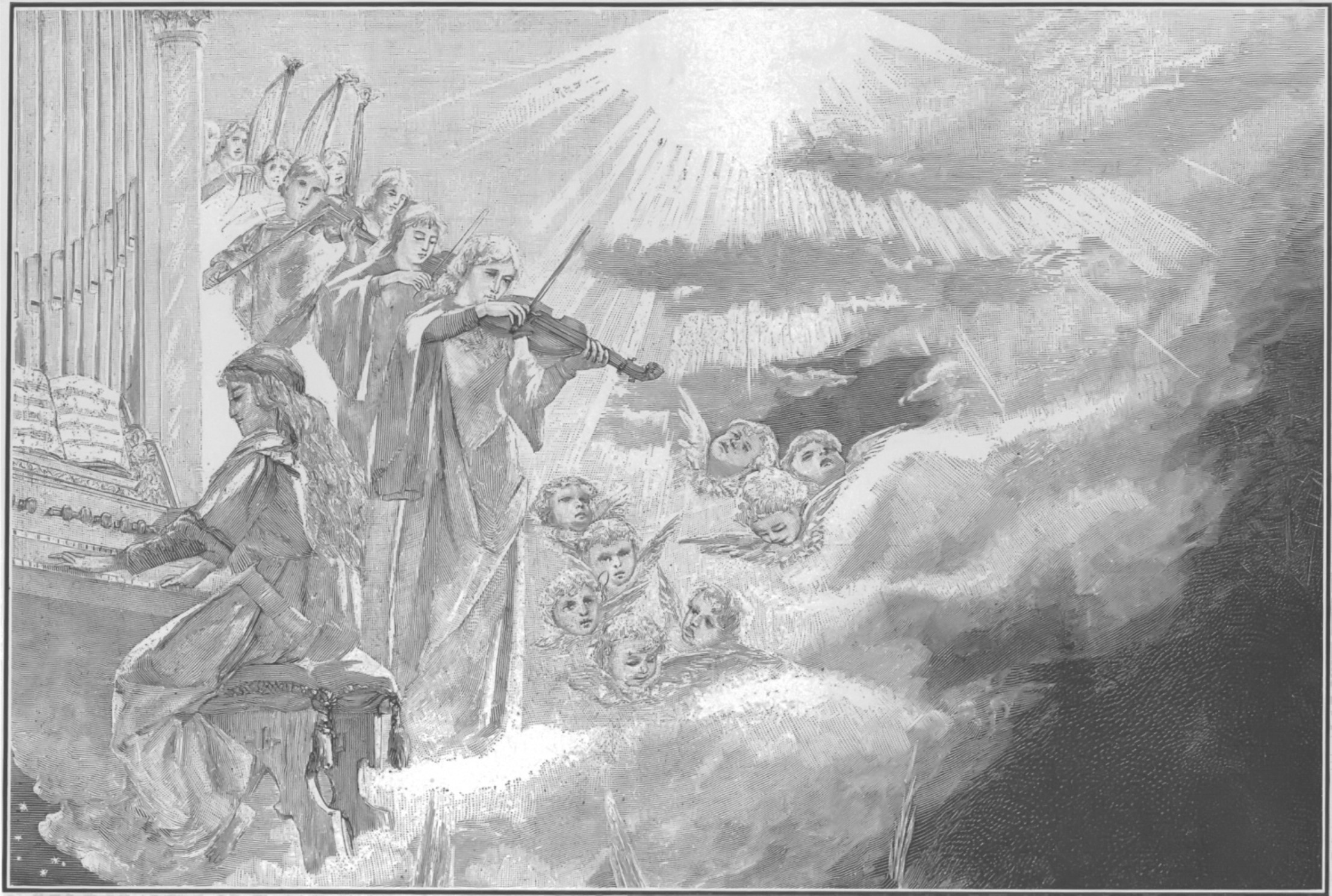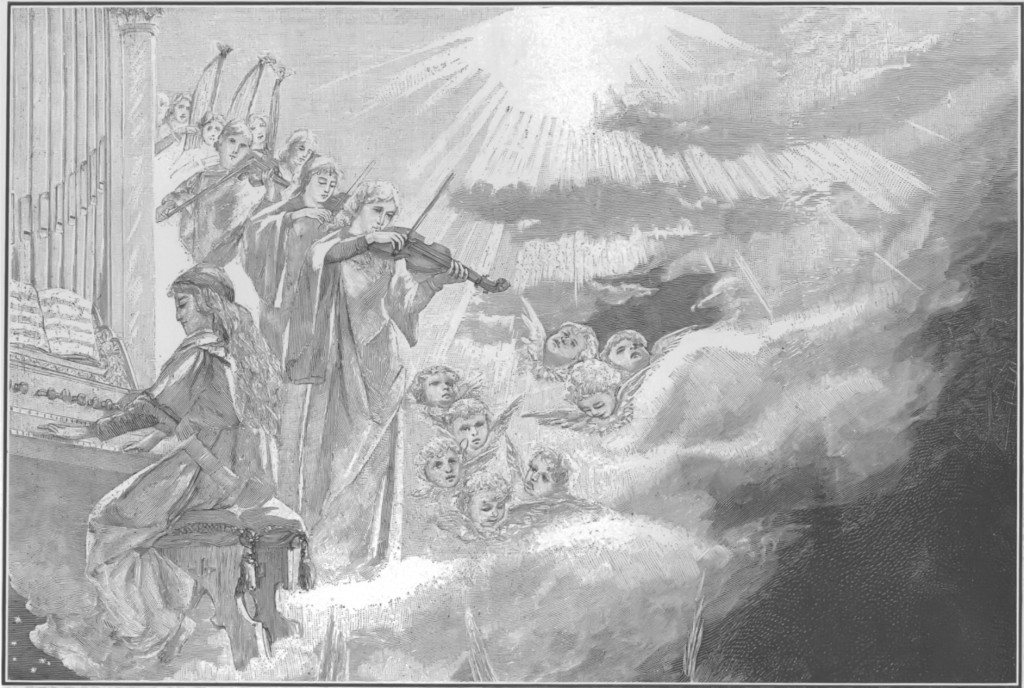This post is a continuation in a series:
—–
Ascribe to the Lord, O heavenly beings,
ascribe to the Lord glory and strength.
Ascribe to the Lord the glory due his name;
worship the Lord in the splendor of holiness. – Psalm 29:1-2, ESV
I’m continuing this series today not so much with a principle, rather with a practice. This practice is a discipline and an exercise, and something I am not at all perfect at. This is a discipline very closely related to my first post in the series (Everything Must Point to the Gospel). Whenever I am reading and studying any text in the Bible, I try to answer the following question:
What reading and understanding of these verses or passages gives God the most glory, honor and praise?
Our God is in himself beyond comprehension in his holiness and perfection. He is the creator of all things, seen and unseen. He is completely sovereign over all things. He is so caring and loving that he would sacrifice himself for sinners who are running far from him.
Words cannot describe his beauty and magnificence! Truly, there is nothing or no one like him. It is because of his goodness, perfection, power and holiness that he is absolutely deserving of our glory, honor and praise. But what does that look like for us? Part of becoming Christian is realizing that we don’t give God the glory he deserves on a daily basis. At its root, this tendency comes from our sinful nature. We all have it, and we all do it. This sinful nature is something that only God through the Holy Spirit can remedy in us. Only he melts hearts, and only he draws sinners to himself.
So what then is our responsibility? God has left his Word with us, the Bible. This Bible is absolutely littered and saturated with descriptions of God as glorious, holy and worthy of praise. Seriously, just do a word or index search on any of those words and it is everywhere. What do we do with that? How should that impact our reading of the Scriptures?
Our handling of the Biblical text must ultimately point to God’s glory, his holiness, his goodness, and lead us to honor and praise him in everything we do. If we do anything but that, then we are making a mockery of who He is. If we seek to undermine the text, write it off as not authoritative, explain it away, read ourselves into the text and make it all about us, or anything of the sort then we are staining something that is perfect and holy.
All that to say, I’ve found the discipline and practice of trying to answer the bolded question very helpful, practical and biblical in my Christian walk. Perhaps a common example of this concept might help. One passage and its interpretation that has completely changed by my application of this discipline is Matthew 14:22-32. In this passage, Jesus comes to the disciples in a storm while walking on water. The climax of this passage is Peter being commanded by Jesus to come out to him on the waves, but watch out! The wind and the waves cause Peter to become afraid and he starts to sink in the water. The passage concludes with Jesus asking “O you of little faith, why did you doubt?”
The most common application of this passage that I’ve heard goes something like this: you and I are Peter, and the wind and the waves are all of life’s problems – stop looking around at the waves, and start looking at Jesus. Even typing that summary makes me a little nauseous. Is that really what this passage is about? I believe that application serves to demean and exalt ourselves by reading us into the passage. That isn’t to say that God doesn’t care about our problems, and that he isn’t Lord over our circumstances, because he certainly is – this just isn’t the passage to make that point (more on this in part 5).
This passage must be and is about God’s glory. And his glory is on display through the demonstration of Christ’s divinity and control over nature, the properties of matter, gravity, etc. He is power. Moreover, this passage displays Christ’s sovereignty in those whom he calls to himself. Peter acknowledges that it is Christ who does the calling, and he is incapable of coming unless it is granted to him by Christ. God’s divinity and his sovereignty are what are on display in this passage, and nothing less.
Just like anyone else, I am imperfect in much of my understanding of the Scriptures. I have my weaknesses and my blind spots, and I often err in my understanding. However, I think this practice is a helpful one. If there is one thing we can be confident on it is this: we can never give God too much credit, too much honor, and too much praise. He is worthy of it all.
To our God and Father be glory forever and ever. Amen. – Philippians 4:20, ESV
Grace. I am so undeserving of grace. Why me, oh Lord?
Consider not I, who would at a young age feign faith yet know you not, rejecting your daily mercies. Consider not I, who at my core am nothing but a lying, thieving, adulterous, man-hating, selfish, prideful and covetous man. For what reason am I deserving of your grace and mercy? Why would you, while I am consciously rejecting and blaspheming your very name, choose to open my eyes and ears to see the beauty of the gospel? “Oh wretched man that I am! Who can save me from this body of sin and death?”
Surely there are others more deserving. Consider instead the social worker who fights daily for justice for children, yet she remains far from you. Consider instead the politician who gives their life towards advocating peace, yet he does not know you. Consider instead those who give up everything to bring relief to people in need, yet they have not experienced your love. Consider instead the doctor serving in low-income areas, who provides medical care to the neglected, yet remains entirely resistant to the very idea of your existence.
Why me, oh Lord? Why would you choose me as your “vessel of mercy”, while I was running farther and farther from you? How could you bring me so near to your holy throne, a filthy and stained sinner like me?
Is it true, as your Word says, that the heart of man is entirely wicked and that we have all gone astray? Is it true, my God, that there is “not one who does good” and that our righteous deeds are like “filthy rags” to you? Who then is worthy to receive your grace?
Indeed my God and Savior, there is not one who is deserving of your grace. For if we could earn your grace, it would no longer be grace. How could we then be so far from you that we would reject the very idea that “while we were yet sinners, Christ died for us?”
What love is this, that it would please you to bring filthy and dirty people like myself into your presence? How great a love that shows mercy to those who “act ignorantly in unbelief.” For in us you are pleased to show your goodness and mercy, “But I received mercy for this reason, that in me, as the foremost, Jesus Christ might display his perfect patience as an example to those who were to believe in him for eternal life.”
I contemplate then the cost of such grace. For as loving and gracious as you are my God, you are also the unlimited and just judge of all creation. How great are you, that you would consider my soul greater than yourself. What kind of God would love a filthy man like me, to allow my sins to nail your perfect Son to the wooden cross?
What kind of God would sacrifice himself for his rebellious creation? There is only one, our mediator Christ Jesus. And just as you then paid the perfect sacrifice “once and for all”, so now you are continually making propitiation and turning away the wrath of the Father towards our sin.
Your grace, Oh Lord. I am so undeserving of your grace. Yet I am so thankful for giving me “eyes to see, and ears to hear.” How can I not now, after weighing the cost of such love, not live my life entirely for you? Oh Lord, melt the hearts of my fellow men, and if it pleases you to do so, send me out to make you known among them.
I was recently talking to a friend (thanks, Tom) about the level of gospel-related imagery present in many Hollywood movies today. We specifically talked about the latest Batman trilogy – one of the reasons everyone loves Batman is that he’s the unlikely hero who is willing to sacrifice himself for the sake of others. Isn’t that why we love the idea of heroes today? One of the subplots in last years Avengers was that Tony Stark wasn’t a true hero until he learned what it meant to sacrifice himself and put his own life on the line. Captain America is the selfless boyscout who, despite being mocked and humiliated by his peers, continually demonstrates that others lives are more valuable than his. Selflessness, humility, sacrifice – things we love to see in our ideal heroes – are all things that Christ demonstrated through his earthly ministry and ultimate death on the cross.
In this years Man of Steel, Christ-like gospel imagery is absolutely everywhere, and the American public is going to eat it up. I am doubtful that either Zack Snyder or Christopher Nolan intentionally placed this imagery in the movie because of their faith (as far as I know, neither are professing Christians). Regardless, they were fully aware of the similarities between Christ and Superman, and were fully aware that this type of hero is exactly what the public wants to see.
Below I’ve compiled a list of some of the more obvious Christ-related imagery in the film. I am sure there are plenty more that I didn’t see during my first screening. While not an exact one-to-one likeness between Christ and the Superman portrayed in this film, the glaring connections cannot be ignored. I have been careful not to place any spoilers in this list, and there isn’t any information in the list below that you wouldn’t know from watching the previews:
- Many characters throughout the film are routinely seen wearing cross necklaces (this would otherwise be unmentionable if it weren’t for other imagery)
- Kal-El (Superman) is sent by one father (Jor-El) and raised by another (Jonathan Kent)
- Kal-El is naturally born, of the same essence as his father – while his enemy (Zod) is a created being
- At one point in the movie, child Clark is seen reading Plato – the influential philosopher of Christ’s time
- Numerous times in the film Superman holds his arms out in the form of a cross in the movie, most noticeably after being told he has the capacity to “save them all” (the human race)
- At a time of serious reflection, Superman has a conversation in a church underneath a stained glass window of Jesus praying in the Garden of Gethsemane (the place where Christ pleaded with the Father before heading to the cross)
- Superman willingly hands himself over to authorities (as seen in the trailers) – just as Christ did to those who arrested him
- Clark is routinely seen as the outcast and mocked and beat up
- There is an interesting conversation about a lack of morality (what the bad guys have) as their evolutionary advantage, while Superman’s weakness is his morality and compassion – and in the end “evolution always wins”***
- Superman explicitly mentions he is 33 years old – the age widely agreed upon for Christ when he was crucified
- Like Christ during his earthly ministry, Superman learns obedience to the mission his father sent him to Earth for
- Jor-El, Kal-El’s father, explains that Kal-El will be “like a god” and will give the people of Earth “something to strive towards.” Ignoring the “like a” god part, Christ is similarly the example all Christians are meant to strive for.
I would wager that this film has the highest amount of gospel-imagery in Hollywood outside of The Passion of the Christ. This imagery was obviously intentional, and is an obvious sign of one very important thing: we crave a Christ-like savior. I am confident that I would be hard-pressed to find anyone who would disagree with the major themes of Christ’s ministry: true love being willingness to lay down one’s life for another, loving others more than ourselves, being thankful for everything we have, forgiveness, his willingness to die for those who hated him – these are all things that our society almost universally agrees on as being great qualities of a leader and hero. Christ’s life and teachings changed the world, and since the first century these have been values that have changed the course of our society. This ultimately begs the question: Why is it that we love everything about Christ, and look for his virtues in our modern heroes today, yet we stop short of the most important thing he preached – faith in him?
Subjective Christ-imagery gulping aside, objectively this film was fantastic. It had everything I was looking for, the emotional pull of an outcast torn between two worlds – and the action Superman is worthy of on the big screen. Seriously, this film easily outdoes Avengers in the action department, and I loved every minute of it. The effects were fantastic, and watching Superman learn his limits as the fights went on was a great touch.
Ultimately, this film is a Sci-Fi origin story about an alien trying to fit in. The film begins on the planet Krypton, and I really loved the world that is portrayed. The scenes here shape a large portion of the plot of the film, and there is an added touch of witnessing a dying civilation that is past its prime. A stand-out performance in this portion of the film is Russel Crowe as Jor-El, who is an absolute beast of a man in every scene he is in.
Henry Cavill’s Superman is not the Donner-age Christopher Reeve boyscout most people are used to. Long gone are the days of the Boy Scout who saves cats from trees. This Superman is a brooding figure, troubled by a past of learning what it means to hide who he really was. That being said, as an origin story, this film does an excellent job of setting up where Kal-El’s moral compass comes from, and his boyscout do-good symbolism is something foreshadowed for future films.
Michael Shannon does a fantastic job of portaying a highly-motivated yet deeply flawed villain – a consequence of the dying society seen on Krypton. He steals any scene he is in, and is suitably creepy as a world-conqueror.
Worth mentioning are the performances by Kevin Costner as Jonathan Kent (Supermans adopted father) and Amy Adams as Lois Lane. Kevin Costner owns probably the most touching scenes of any movie this summer. The scenes of Clark growing up with his adopted father were an excellent touch on the film. In addition, Amy Adams portrays a much smarter version of Lois Lane, one who doesn’t seem so absent minded and blindly wandering into danger.
Hanz Zimmer also does a magnificent job with the new theme for this new Superman. Many people were concerned it would be hard to follow behind John Williams’ masterpiece score from the 1978 film, but Zimmers soundtrack does not dissapoint. It fully engages and melts all your senses.
My biggest critique of the film is that there were some serious pacing issues at times. Much of the film is told through flashbacks, and jumping around from present time, to flashbacks, to Zod, back to present, etc. could be a little jarring. I understood why they did the film this way, but I think it could have been simplified at times. Many critics also complained about “too much action”, and while that was exactly what I was looking for – the last half of the 2.5 hour run time is pure action – it may not be for everyone.
Ultimately, I loved this film. I ate up the gospel-imagery, which might make me a little biased, but objectively this is a great summer film with some emotional weight that many blockbusters don’t have. I give it a very high rating on an arbitrarily ambiguous scale.
***Note: For anyone who thinks I’m making this comment out of animosity towards science, that is not the case. I am a pro-science, Old-Earther (likely in the billions), Bible-believing Christian. I just found this dialogue interesting, as a lack of morality is the logical conclusion to a humanisitic-only evolutionary worldview.
This is the continuation of a series:
3) The Entire Bible is in God-Inspired Reconcilable Harmony
This point is probably the most crucial, yet most difficult pill to swallow. In an age where rationalism and empiricism are highly valued over faith, the rational thought and empirical evidence are pitted at odds with faith and its commonly accepted that there is absolutely no way the Bible is God-inspired, let alone at harmony with itself. On the opposite end of the spectrum, faith is pitted against rational thought because the only thing that’s important is “my relationship with Jesus – after all that intellectual stuff is left for the scholars at the seminaries.” Both schools of thought, and for the Christian the latter view is completely unbiblical. Is it necessary to take the Bible as one inspired non-contradictory text? My answer is ‘yes’, and I say so for three reasons; 1) because the Bible speaks of itself authoritatively, 2) it charges us to think critically about the text and 3) because of the temptations set before us when the Scriptures are read any other way.
There is no place in the Bible where it doesn’t speak of itself as authoritative and cohesive. The most popular text referenced for this is 2 Timothy 3:16, “All Scripture is God-breathed…” The Apostle Peter refers to Paul’s writings as Scripture. Throughout his writings, Paul routinely defends his Apostolic authority (in contrast to the heretical people he is addressing in his letters), and the Hebrew Scriptures of the Old Testament were what Jesus himself taught from and spoke of as being authoritative. It is common today for people to pick and choose the passages they like out of the Bible and those they don’t (more on this later), but that is being logically inconsistent. There is no reason to accept any of the Scriptures as God-inspired and others as not, so when we approach the text it is logical and necessary to approach it as one cohesive unit.
This is not to say that our faith in the text nor our assumptions should be blind nor on a whim. Accepting the Bible as an inspired cohesive unit fuels intellectual rigour. Admittedly, there are some difficult and challenging things in the Biblical text. There are some points that appear to be inconsistent or contradictory. We could easily write these things off if we didn’t accept the text as inspired, however that would do disservice to the intellectual exercise that Scripture is in part meant to provide. As Christians, we are to think hard and seriously about our faith, and press in deep when we come across things that don’t at first glance make sense. That is what it means to love God with all our mind, a third of the greatest commandment that we cannot ignore.
In addition, I believe there is a healthy level of questioning, skepticism and doubt that can fuel our Biblical studies. This skepticism and doubt should never undermine the bottom line that we believe the text to be inspired, but nonetheless skepticism and doubt can serve to motivate our studies. This isn’t a concept foreign to the Scriptures. Take for example the Berean Jews in Acts 17, who “received the word with all eagerness, examining the Scriptures daily to see if these things were so.” Further, it was their intense examinations of the Scriptures that caused many of them to be led to belief. The Bible routinely commands Christians to be prepared to give responses about their faith to others (2 Timothy 4:2, 1 Peter 3:15), and knowing the truth of Scriptures is meant as a defense against deceitful heretical teachings. Even some of those who witnessed the resurrected Christ in Matthew 28 were doubtful – “Many worshipped him, but some doubted” (verse 17). It’s not as if one guy was standing there saying “Some magic trick this is”, and another is saying “It’s not a trick, its called an illusion.” No! Even after seeing the resurrected Christ some still had doubt – so I think it’s healthy today to have some level of doubts and skepticism so long as it doesn’t undermine our faith itself. Skepticism and doubts can be healthy fuel for deeper Bible reading.
Lastly, the temptations that face us if we don’t regard the Bible as one God-inspired cohesive unit are too great. We can trick ourselves into thinking we have the intellectual abilities to filtering out what isn’t necessary and what is, but at the end of the day we are giving into crafting a God that we are most comfortable with. Take for example the condemned deeds of the flesh in Galatians 5, “...sexual immorality, impurity, sensuality, idolatry, sorcery, enmity, strife, jealousy, fits of anger, rivalries, dissensions, divisions, envy, drunkenness, orgies, and things like these” (verses 19b-21). If I don’t regard the Bible as God-inspired, then really I can just remove any of these works of the flesh from the list that I want. So thoughts like this begin to happen: Anger isn’t that bad, because some people are really frustrating. And if anger isn’t that bad, then I suppose losing control and drinking too much on the weekends isn’t so bad. After all, we’re only having a little fun right? And if I’m really going to have fun, then I should probably hook up with a few more people. After all, there isn’t really a reason to be faithful to one person since I have urges to satisfy. Picking and choosing what we want to believe from the Scriptures is a slippery slope that can only lead us away from God into the comforts of our own minds.
This is an intentionally short high-level view of why I regard the Scriptures as cohesive and inspired, as well as why I think it is necessary to do so. Books have been written on the subject, and I didn’t even get into empirical/rational arguments for the cohesiveness of Scripture. Those arguments are certainly important, but at the foundational level I have explained three basic reasons to regard the Scriptures as one unit.
Questions or comments on this subject? Feel free to comment or send me a note!








